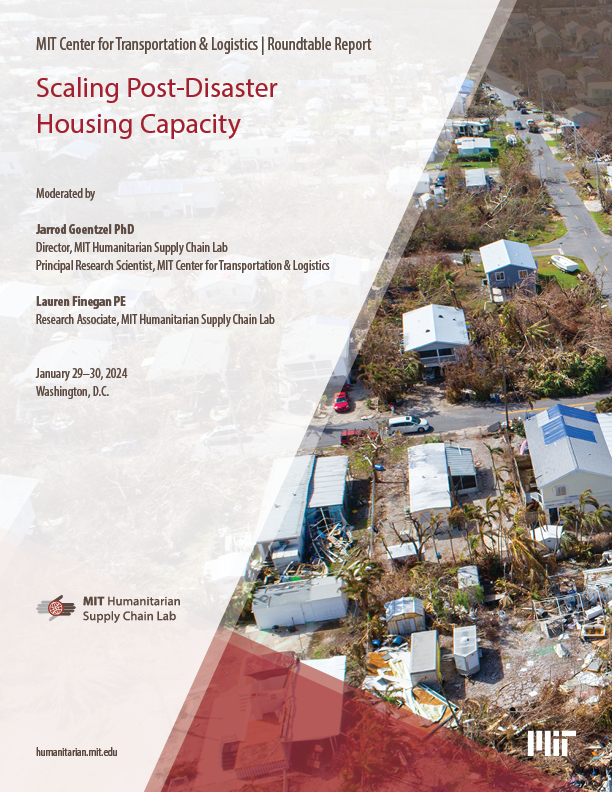
In January 2024, the Humanitarian Supply Chain Lab at the Massachusetts Institute of Technology held a roundtable on the theme of scaling construction capacity after disasters, convening individuals from academia, nonprofit, and public and private sector organizations. Participants brought varied perspectives, including considerations of supply chains, government policies, building codes, and private sector construction operations. To ensure candor, the event was held under Chatham House Rule. The roundtable used recent natural disasters and their housing challenges to frame discussions around two goals: (1) identify approaches to increase capacity for rapidly deployable housing solutions after disasters and (2) capture policy and operational constraints that hinder implementation of those rapidly deployable housing solutions. The event and this report seek to catalyze systemic research and provide discrete recommendations to address the challenges and opportunities to restore housing for disaster survivors.
The first half-day of the roundtable focused on understanding housing demand after disasters, including survivor needs, policies governing responses, and the geography of the impacted area. Discussions explored topics of community engagement, the limitations of existing housing solutions, and the value of local resources and expertise. Further discussions on the first day differentiated the challenges of repairing vs. rebuilding homes after disasters. Builders and code experts provided context on the challenges the industry faces in responding to disasters, from funding lags to balancing existing customers and getting a true understanding of the demand for services, to paperwork and process hurdles. Participants also shared best practices including state bridge funding, portioning out work to maximize skilled and novice or volunteer labor, and data gathering and management to understand survivor needs.
The second half-day focused on gathering solutions to the challenges identified on day one, beginning with a discussion on ways to scale construction capacity for rebuilding homes—when repair is not feasible. This included perspectives from the modular building industry, including builders with experience in panelized and volumetric modular construction, as well as federal, state, and nonprofit experiences with rebuilding. Participants considered the spectrum of post-disaster housing challenges to propose and discuss a range of interventions that could speed up the restoration of housing for disaster survivors. Interventions emerged around the key themes of funding, codes and standards, labor, industrialized housing, and planning and community engagement.
Roundtable participants represented stakeholder groups with differing jurisdiction, capacity, and influence over the responses that occur immediately after a disaster and for the months and years that follow. This roundtable report concludes with descriptions of actions available to these stakeholder groups and recommendations for their implementation.